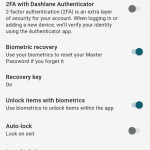To speed up your internet connection in Windows 7, try disabling any unused network adapters and running the Windows network troubleshooter. You can also optimize your internet settings and update your network drivers for improved performance.
Enhancing your internet connection in Windows 7 can lead to faster browsing and downloads, ultimately improving your overall online experience. By following these simple steps, you can enjoy a more responsive and efficient internet connection on your Windows 7 device.
Now, let’s explore some effective strategies to enhance your internet speed and optimize your network settings in Windows 7.
Checking Current Internet Speed
If you’re wondering how to speed up your internet connection in Windows 7, one of the first steps is to check your current internet speed. To do this, you can use an online speed test tool, which will measure your download and upload speeds. Additionally, Windows 7 also provides built-in tools to help you monitor and improve your internet connection. For example, you can use the Task Manager to see which applications or processes are using the most bandwidth and close them if necessary. Furthermore, you can optimize your network settings by adjusting the TCP/IP parameters such as the Maximum Transmission Unit (MTU) size and the Receive Window Auto-Tuning Level. These settings can help improve your internet connection speed. Overall, by checking your current internet speed and utilizing the tools available in Windows 7, you can effectively speed up your internet connection.

Credit: m.youtube.com
Optimizing Windows 7 Settings
To speed up your internet connection on Windows 7, update your network drivers regularly. Make sure to disable unnecessary background applications running in the background. These steps can optimize your system settings and enhance internet speed significantly.
Maximizing Router Performance
To speed up your internet connection in Windows 7, ensure proper router placement and antenna positioning. Utilize Quality of Service (QoS) settings for optimizing performance.
Utilizing Advanced Network Settings
To speed up your internet connection in Windows 7, you can utilize advanced network settings, such as changing DNS servers and adjusting TCP/IP parameters.
Changing DNS servers can improve your internet speed by directing your internet traffic more efficiently. You can change the DNS servers by going to the Network and Sharing Center, selecting your active network connection, and opening the Properties window. Then, locate the Internet Protocol Version 4 (TCP/IPv4) option and click on the Properties button. From there, you can manually enter the preferred and alternate DNS server addresses.
To adjust TCP/IP parameters, you can access the Command Prompt and use specific commands. For example, you can change the Maximum Transmission Unit (MTU) value to optimize data packet sizes, or modify the Windows Auto-Tuning level to improve network performance.
By implementing these advanced network settings in Windows 7, you can effectively speed up your internet connection.
Considerations For Wired And Wireless Connections
For Ethernet cable maintenance, ensure cables are not worn or damaged.
Enhancing Wi-Fi signal strength can be done by placing the router in a central location.
Avoid interference from other devices and obstacles.
Additionally, updating router firmware and selecting the right channel can help improve signal strength.
Security And Malware Prevention
To ensure firewall configurations, you should check the Windows Firewall settings and ensure it is turned on, providing an essential level of security. Use a reputable antivirus software and schedule regular scans to detect and remove any malware and adware, ensuring a secure internet connection.
Implementing Hardware Upgrades
If you’re looking to speed up your internet connection in Windows 7, implementing hardware upgrades can greatly improve your browsing experience. Upgrading to a gigabit router can provide faster network speeds, allowing for quicker and more reliable connections. Another option is enhancing your Wi-Fi adapter by upgrading to a newer model that supports higher speeds and wider coverage. Both of these upgrades can help optimize your network performance and ensure smoother internet browsing. By investing in these hardware upgrades, you can take advantage of the latest technology and maximize your internet speed in Windows 7.

Credit: www.avast.com
Additional Tools And Resources
Boost your internet speed on Windows 7 with additional tools and resources. Enhance connectivity and browsing experience effortlessly. Optimize your system for seamless online performance.
| Additional Tools and Resources |
| Enhance internet speed by using Network Monitoring Software. |
| Monitor network activity and identify potential bottlenecks. |
| Consider contacting your Internet Service Provider for assistance. |

Credit: softkeys.uk
Conclusion
To wrap it up, optimizing your internet speed in Windows 7 is crucial for a smooth online experience. By implementing the steps mentioned above, you can significantly enhance your internet connection. From configuring network settings to optimizing your browser, there are various methods that can help improve your browsing and download speeds.
Don’t settle for slow internet when you have the power to make it faster. Boost your internet speed and enjoy seamless browsing, streaming, and downloading in Windows 7.









